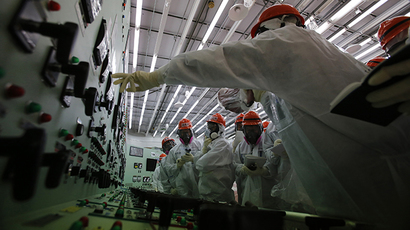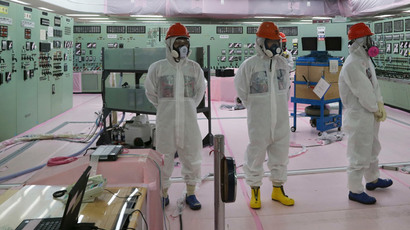Fukushima radiation ‘unlikely’ to increase cancer rates – UN report
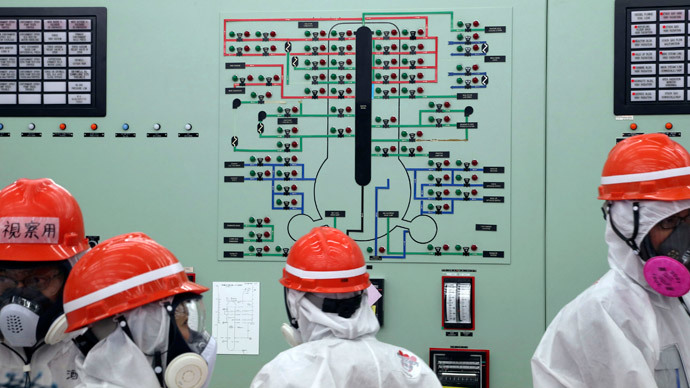
Fallout from the Fukushima nuclear power plant meltdown is unlikely to increase cancer rates in Japan, a UN study has found. Nevertheless investigators say that children most exposed to radiation could run a greater risk of contracting thyroid cancer.
Dispelling fears of an increase in cancer cases similar to the
aftermath of the Chernobyl disaster in 1986, UN investigators
claim cancers levels will “remain stable” in Japan.
"No discernible changes in future cancer rates and hereditary
diseases are expected due to exposure to radiation as a result of
the Fukushima nuclear accident," UNSCEAR (United Nations
Scientific Committee on the Effects of Atomic Radiation) said in
a statement accompanying its nearly 300-page study.
The report, entitled ‘Levels and effects of radiation exposure due to the nuclear accident after the 2011 great east-Japan earthquake and tsunami’, attributes the limited impact of the nuclear disaster on the Japanese public to “prompt protective actions on the part of the Japanese authorities following the accident.” Additionally, the study’s authors ruled out a rise in hereditary diseases and babies born with birth defects.
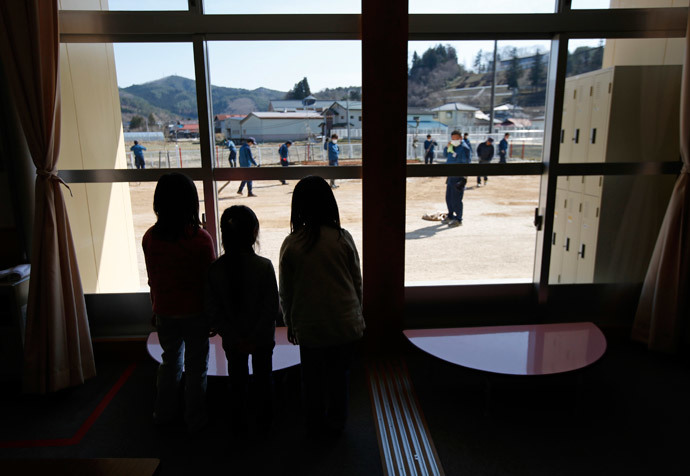
However, scientists drew attention to a group of around 1,000 children who could have been exposed to a potentially dangerous dose of radiation (100 mGy) in the wake of the Fukushima disaster. They said levels of thyroid cancer among this group could be expected to increase and this would have to be closely monitored in the future.
Six minors in the Fukushima Prefecture who were 18 or younger when the disaster struck in March 2011 have been diagnosed with thyroid cancer.
“The occurrence of a large number of radiation-induced thyroid cancers as were observed after Chernobyl can be discounted because doses were substantially lower,” writes the study. At the same time it admits there are “uncertainties” regarding those who were exposed to radioactive radiation straight after the incident.
“The most exposed workers will receive regular health checks," said Wolfgang Weiss, chair of the assessment.
The study itself involved 80 leading scientists who analyzed the effects of radiation on marine ecosystems and flora and fauna surrounding the derelict plant. They found that any tangible effects were “transient,” with the exception wildlife in the shoreline area adjacent to the Fukushima power plant.
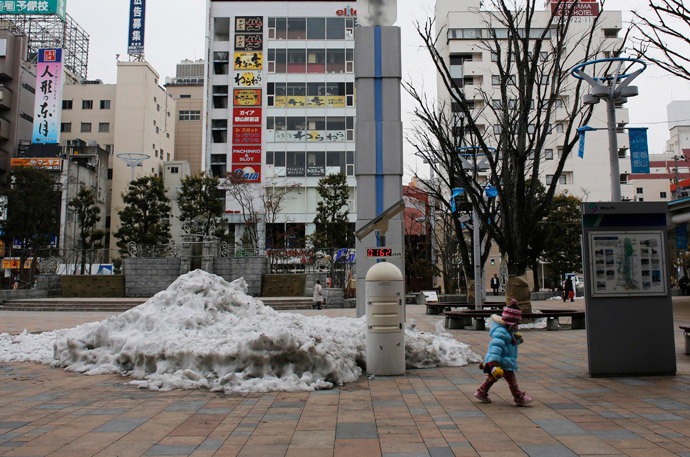
Three years after the meltdowns at Fukushima, the consequences of the disaster are not only physical. Children born at the time are experiencing developmental issues such as emotional issues and short tempers.
"There are children who are very fearful. They ask before they eat anything, 'Does this have radiation in it?' And we have to tell them it's OK to eat," said Mitsuhiro Hiraguri, director of the Emporium Kindergarten in Koriyama, some 55 km west of the Fukushima nuclear plant.
The Japanese authorities have been heavily criticized for their management of the Fukushima nuclear power plant after the earthquake-triggered tidal wave hit the facility in 2011 causing multiple meltdowns.
TEPCO, the company that owns the plant, is currently engaged in a lengthy cleanup process at the site which has been dogged by delays and set-backs. Leaks from the facility of radioactive water have proved to be a consistent thorn in the side of the operation, with an estimated 100 metric tons of highly contaminated escaping and being absorbed into the ground earlier this year.
The authorities also began the highly dangerous task of removing the facility’s depleted fuel rods last November. Over 1,500 rods have to be removed from stricken Reactor 4 and transported into underwater storage in a process that is expected to take around a year. It is thought that it will take decades to complete the full cleanup operation and will cost billions of dollars.













